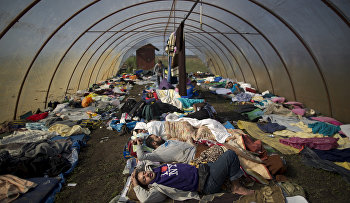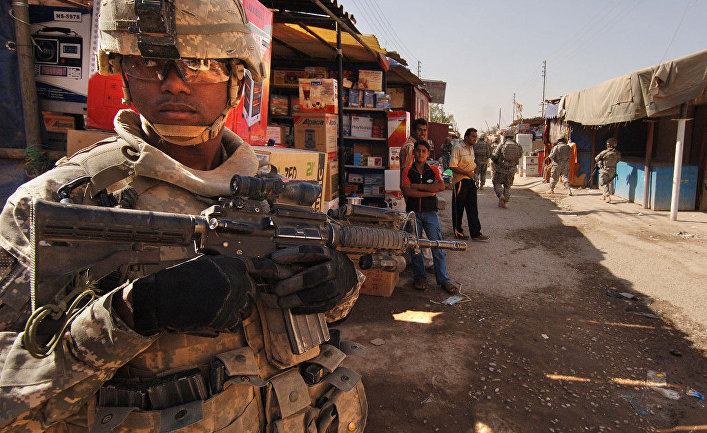Following Russian intervention in the Syrian conflict, the Middle East is progressively becoming an arena of intense rivalry between the United States and Russia. The latter appeared to seize the initiative in Syria. Russian air strikes turned out to be much more effective than US air raids. In a three week period Moscow has become a major player in Syria and pushed Americans aside, who have not achieved significant results during the year of bombing of ISIL's positions.
Over the period of 15 months (since August 2014), an international coalition led by the US, made more than 7000 air strikes on ISIL positions and other Sunni Jihadist groups. Despite a huge number of air raids, Jihadists have not been defeated yet, on the contrary the Islamic Government units occupied Palmyra in Syria and Ramadi in Iraq in May. However, the refusal of US to cooperate with Damascus and Iraqi Shiites has taken a toll on the effectiveness of the its bombardments; the coalition hasn't gotten enough of accurate intelligence information, which can be available only on ground. American pilots have to rely only on the Syrian Kurds' military information, which is not always accurate and covers only Northeastern Syria.
The results of Russian airstrikes on the terrorists' positions in Syria made a strong impression not only in the region, but also in neighboring Iraq. Two members of Iraqi Parliament are quoted as saying that the Prime Minister Haider al-Abadi is under "tremendous pressure," as sited by The Independent. Moreover, the National Alliance lead by Al-Abadi, requests Russian military assistance against ISIL.
US coalition conducts fewer airstrikes in Syria since #RussiaVsISIL operation https://t.co/NYa3Thfkna pic.twitter.com/OfoVCFPACA
— Sputnik (@SputnikInt) October 28, 2015
Al-Abadi responded to his party members saying — he did not want to risk the relationship with the United States. Chairman of the Joint Chiefs of Staff, General Joseph Dunford, on his recent visit to Iraq, bluntly demanded the Iraqi authorities not to seek Russian military aid, and in fact presented Baghdad with an ultimatum: either the US or Russia. No one would want to be in Al-Abadi's shoes. His position in the country is quite unstable, since he didn't manage to regain the territories lost last year to ISIL. Shiite leaders are complaining that the US armed forces refuse to support their actions with airstrikes. Yet Shiite militias are more motivated and disciplined than the regular army, which never recovered after last year's losses.

Prime Minister Al-Abadi is facing increasing criticism for being too hesitant and feeble. The most potent and capable Shiite armed groups — Badr, Asa'ib Ahl al-Haq, and Kata'ib Hezbollah – are autonomous and often operate independently from Baghdad's government. Washington and some Arab nations believe that these groups are under the influence of Tehran.
According to Reuters, Shiite militias include more than 100 thousand men and represent a serious power. More young Shiites are now choosing to serve in a less corrupt militia, and not in the government army. On top of that, Iraqi Ministry of Defense is progressively going under Shiite militia control. 70% of Ministry of Defense officers describe themselves as loyal not only to the government, but to militia first and foremost. As the result, now one of five battle-ready divisions is in practice under command of Shiite militia and is following its orders.






